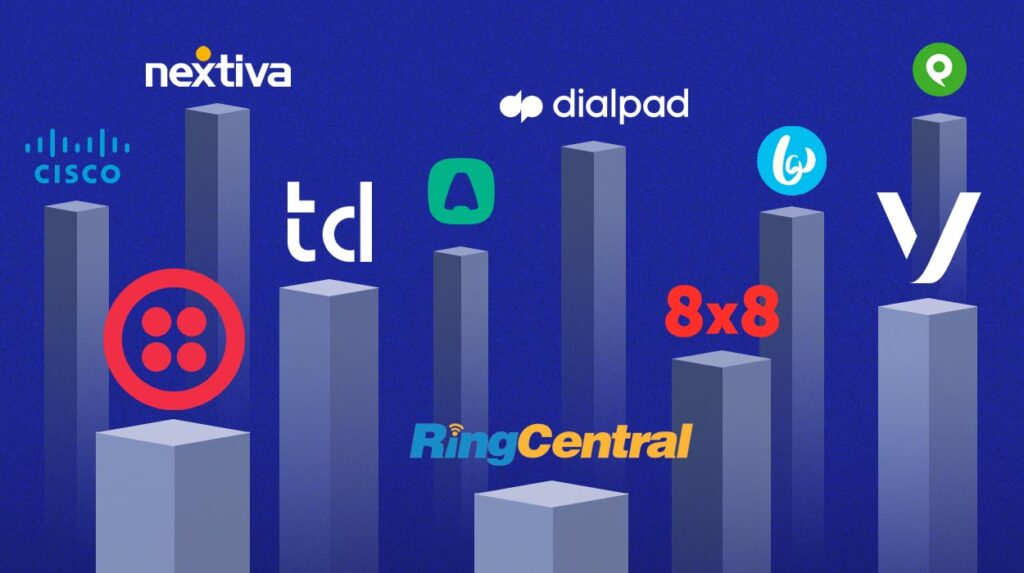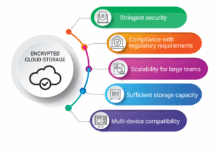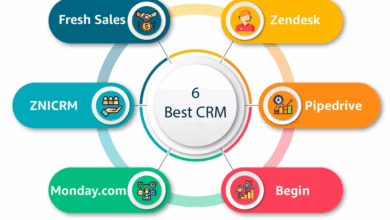Top Business VoIP Providers for 2025: Best Solutions for Seamless Communication

In today’s fast-paced digital world, businesses need efficient communication solutions to stay ahead. Top Business VoIP (Voice over Internet Protocol) Providers systems offer a cost-effective and scalable solution for small, medium, and large enterprises. Unlike traditional phone lines, business VoIP services use the internet to make calls, providing advanced features that help businesses streamline operations.
But how do you choose the right VoIP provider? With so many options available, it can be overwhelming to pick the best one for your business. This article explores the best business VoIP providers for 2025, diving into their features, benefits, and pricing so that you can make an informed decision. Whether you’re a startup looking for an affordable plan or an established company seeking advanced features, we’ve got you covered.
What is Business VoIP?
Business VoIP (Voice over Internet Protocol) allows businesses to make and receive phone calls over the internet instead of traditional landline systems. This means that phone calls are made through the internet, reducing costs and offering more flexibility. VoIP systems offer a range of features that traditional phones can’t provide, such as call forwarding, virtual receptionists, video conferencing, and integration with other business tools like CRM systems.
Key Features of Business VoIP:
- Scalability: VoIP systems can easily scale as your business grows, allowing you to add or remove lines and features as needed.
- Cost Efficiency: By eliminating the need for traditional phone lines, VoIP services can dramatically reduce communication costs.
- Advanced Call Management: Features like call forwarding, voicemail-to-email, and auto attendants improve call management efficiency.
- Cloud Integration: Many VoIP services offer cloud-based solutions that allow for easy access to your communication system from anywhere.
Why Choose a Business VoIP Provider?
Switching to a business VoIP provider brings numerous advantages that traditional landline systems simply can’t offer. These benefits go beyond just cost savings, making VoIP the preferred communication tool for modern businesses.
Benefits of Using a Business VoIP System:
- Cost Savings: Traditional phone services can be expensive, especially for long-distance calls. VoIP providers often offer unlimited local and long-distance calling at a fraction of the cost.
- Flexibility: With VoIP, your business can enjoy the flexibility of remote work and mobility. Calls can be routed to any device with an internet connection, meaning employees can work from anywhere.
- Advanced Features: VoIP providers offer an array of features like call forwarding, voicemail transcription, and mobile apps that are often not available with traditional phone systems.
- Improved Customer Service: VoIP systems can include features like auto-attendants, interactive voice response (IVR), and call queuing, which enhance customer service operations.
- Integration with Business Tools: VoIP systems can be integrated with other essential business tools such as CRM software, which makes it easier to manage communications and track client interactions.
Best Business VoIP Providers for 2025
Here are the top five business VoIP providers in 2025, each offering unique features to cater to different business needs.
1. RingCentral – Best Overall for Small to Large Businesses
RingCentral is one of the most popular business VoIP providers, known for its reliability and robust feature set. It offers cloud-based phone systems, video conferencing, team messaging, and more, all in one platform.
Key Features:
- Unlimited calling to the US & Canada
- Cloud PBX and voicemail-to-email
- Video conferencing with screen sharing
- Mobile app and desktop app integration
Pros:
- Easy to scale with your business
- Offers mobile apps for remote workers
- 24/7 customer support
Cons:
- Pricing can be high for small businesses
- Complex for very small teams
Price: Starting at $19.99 per user/month
2. Nextiva – Best for Customer Support Teams
Nextiva is known for its excellent customer support and a wide range of tools for businesses of all sizes. From VoIP to business texting and analytics, Nextiva has it all.
Key Features:
- Call analytics and performance tracking
- Voicemail-to-text
- 24/7 customer support
- Video conferencing and team messaging
Pros:
- Reliable uptime and strong security
- Excellent customer service
- Advanced analytics for better performance tracking
Cons:
- More expensive than some competitors
- Setup can be a bit tricky
Price: Starting at $19.95 per user/month
3. Ooma Office – Best for Small Businesses
Ooma offers an affordable VoIP solution for small businesses, providing all the essential features needed to stay connected.
Key Features:
- Virtual receptionist and call blocking
- Call forwarding to mobile phones
- Desktop and mobile apps
- Voicemail-to-email and fax support
Pros:
- Cost-effective pricing
- Easy to set up
- Flexible contract options
Cons:
- Limited advanced features for larger businesses
- International calls can be expensive
Price: Starting at $19.95 per user/month
4. Vonage Business – Best for Customization and Integration
Vonage Business offers an easy-to-use VoIP solution that’s highly customizable, with integrations for CRM software and other business tools.
Key Features:
- Call forwarding and call queuing
- Cloud-based call management
- Integration with Salesforce, Microsoft Teams, and more
- Mobile app for remote workers
Pros:
- Great for businesses with specific integration needs
- Flexible pricing
- Strong call management features
Cons:
- Can be expensive for small businesses
- Limited international calling options
Price: Starting at $19.99 per user/month
5. 8×8 – Best for International Calls
8×8 is a VoIP provider that excels in international calling, making it ideal for businesses with global clients.
Key Features:
- Unlimited international calls
- Cloud-based contact center
- Video conferencing
- Call recording and analytics
Pros:
- Cost-effective international calling rates
- Excellent video conferencing features
- Flexible plans for businesses of all sizes
Cons:
- Limited integrations compared to competitors
- Advanced features may be overkill for small businesses
Price: Starting at $12 per user/month
Comparison Table: Business VoIP Providers
| Provider | Price | Best For | Key Features | Pros | Cons |
|---|---|---|---|---|---|
| RingCentral | $19.99/user/month | Small to large businesses | Cloud PBX, Voicemail-to-email, Video Conferencing | Easy scaling, 24/7 support | Expensive for small teams |
| Nextiva | $19.95/user/month | Customer support teams | Call analytics, Video conferencing | Strong security, Excellent support | Expensive pricing, Setup complexity |
| Ooma | $19.95/user/month | Small businesses | Virtual receptionist, Call forwarding | Cost-effective, Easy setup | Limited advanced features |
| Vonage | $19.99/user/month | Customization, Integration | CRM integration, Call forwarding | Customizable, Flexible pricing | Expensive for small businesses |
| 8×8 | $12/user/month | International businesses | Unlimited international calls, Video conferencing | Great international rates, Flexible plans | Limited integrations, Complex for small businesses |
How to Buy a Business VoIP System
When purchasing a VoIP service for your business, it’s essential to consider your needs, budget, and growth plans. You can buy VoIP services directly from each provider’s website, where you’ll find details on pricing, features, and how to sign up. Some providers offer free trials, so you can test out their service before committing.
Steps to Buy:
- Evaluate Your Needs: Consider the size of your business, the features you need, and your budget.
- Visit the Provider’s Website: Go to the provider’s official website to view plans and pricing.
- Sign Up and Customize: Choose your plan, enter business details, and set up features such as call forwarding or video conferencing.
- Download Apps: After purchasing, download the desktop or mobile app to start using your new VoIP system.
Choose the Best Business VoIP Provider for Your Needs
When it comes to enhancing your business communications, choosing the right business VoIP provider is critical to ensure that your team can stay connected efficiently and cost-effectively. The best VoIP systems offer a combination of advanced features, flexibility, scalability, and affordability, which can help streamline operations and improve customer service.
By considering the specific needs of your business—whether it’s international calling, ease of use, integration with existing tools, or simply cost savings—selecting the right VoIP service can significantly enhance your overall productivity.
Remember, there’s no one-size-fits-all solution, so take the time to explore different providers, their features, and pricing. Compare how each service matches your business goals and choose one that fits your communication needs. With the right VoIP system, you’ll not only save money but also provide your team with the tools they need to succeed in today’s fast-paced digital environment.
Where to Buy and How to Get Started
All of the business VoIP providers mentioned above can be purchased directly through their respective websites. Here’s a quick guide to help you get started:
- RingCentral: Visit RingCentral’s website to explore pricing plans and sign up for a trial.
- Nextiva: Visit Nextiva’s website for a detailed look at their VoIP solutions.
- Ooma Office: Check out Ooma Office for flexible, cost-effective VoIP plans for small businesses.
- Vonage: Explore Vonage’s offerings to discover customizable solutions for your business.
- 8×8: Go to 8×8’s website to find pricing information for international calling solutions.
Each provider offers a range of options based on your business needs, from scalable plans to customizable features. Many of them also provide free trials or demo versions, so you can test out the service before fully committing.
If you’re ready to make the switch or upgrade your communication system, click the links above to visit the provider’s website and sign up for the plan that best fits your business.
Conclusion
Choosing the right business VoIP provider is more than just a financial decision—it’s about making an investment in your business’s communication infrastructure. The right VoIP system can improve team collaboration, enhance customer service, and give your business the tools it needs to grow and succeed.
Take your time to evaluate your options, consider the features that matter most to you, and choose a VoIP provider that can scale with your business as it expands. Whether you’re just getting started or upgrading your existing system, switching to a business VoIP provider is a smart, forward-thinking choice for any modern business.
By carefully selecting a business VoIP provider that meets your needs, you can ensure that your team stays connected, customers are happy, and your business continues to thrive. Don’t wait—start exploring the best VoIP solutions for your business today!
How to Choose the Right Business VoIP Provider for Your Needs
Selecting the right business VoIP provider requires considering several factors to ensure the service aligns with your business goals. Every company is different, and you need to find a provider that not only fits your budget but also meets your functional needs.
Here are some key points to help you choose the best VoIP provider for your business:
1. Business Size and Scalability
Think about your current business size and how much you expect to grow. For a small business with only a few employees, you may only need basic features like call forwarding, voicemail, and conference calling. However, larger businesses or those anticipating growth may need advanced features like integration with customer relationship management (CRM) tools, call analytics, and a multi-line setup. Look for a provider that offers scalability—meaning you can easily add more lines or features as your business grows.
2. Budget
Price is an important factor when choosing a VoIP provider, especially for small and medium businesses (SMBs). Many providers offer tiered pricing plans based on features and the number of users. Keep in mind that the lowest price may not always offer the best value. Compare what each plan includes—such as call quality, customer support, and extra features—and find a provider that fits both your budget and your requirements.
3. Features and Integrations
The features offered by business VoIP services can vary greatly. Some providers may offer basic features, while others provide more advanced tools such as video conferencing, call analytics, voicemail-to-email, call forwarding, and virtual assistants. Make sure to choose a provider whose features align with your business’s operational needs. Additionally, check for integrations with your existing business tools such as CRM systems, email platforms, or customer support software.
4. Reliability and Uptime
VoIP systems rely on your internet connection, and any disruption to that service can cause problems for your business communication. Look for a VoIP provider that guarantees high uptime, preferably with Service Level Agreements (SLAs) that ensure 99.9% uptime or higher. You may also want to check customer reviews or ask for references to get a sense of the provider’s reliability.
5. Customer Support
Customer support is crucial for business communication systems, especially if you encounter technical issues or need assistance with system setup. Choose a provider that offers 24/7 customer support, preferably through multiple channels like phone, chat, and email. Consider providers that also offer a comprehensive knowledge base or training resources to help your team get the most out of the system.
Advanced Features That Make Business VoIP Providers Stand Out
When comparing business VoIP providers, it’s essential to explore the advanced features that separate the top-tier providers from the rest. These features can have a significant impact on how efficiently your business operates, improving communication both internally and with clients.
1. Call Analytics & Reporting
Call analytics help businesses track important call metrics such as call volume, call duration, and call quality. This data is crucial for making informed decisions about customer service operations and identifying trends or inefficiencies. Providers like Nextiva and RingCentral offer advanced call analytics, which can be integrated with CRM systems to give your business a comprehensive overview of your communication performance.
2. Video Conferencing Integration
Video calls have become a vital part of business communication, especially in the post-pandemic era, where remote work is increasingly common. Many VoIP providers, such as RingCentral and Vonage, offer built-in video conferencing tools that integrate with their phone systems, making it easy to schedule, manage, and conduct video meetings directly through the platform.
3. Call Forwarding & Routing
For businesses that deal with high call volumes or have remote teams, features like call forwarding, call routing, and virtual receptionists are essential. Providers like 8×8 and Ooma offer robust call forwarding features that can redirect calls to different phones or extensions, ensuring no customer is left unattended. Advanced call routing can send calls to the appropriate department or even prioritize urgent calls based on specific criteria.
4. Voicemail-to-Email and Transcription
Voicemail-to-email is an essential feature for businesses that need to stay on top of missed calls. This feature sends your voicemail messages directly to your email inbox, allowing you to listen to them and respond quickly. Some providers, like Vonage and Nextiva, even offer voicemail transcription, which converts voicemail messages into text format for easier reading.
5. Mobile Apps for Remote Work
As remote work becomes more common, businesses need flexible communication solutions. Most business VoIP providers offer mobile apps that allow employees to make and receive calls from their smartphones. This is especially useful for businesses with a mobile workforce or those that rely on traveling employees. RingCentral and Ooma both offer high-quality mobile apps that replicate the functionality of your office phone system, ensuring you’re always connected.
Common Issues VoIP Systems Solve for Businesses
Understanding the common communication challenges businesses face can help you identify the right business VoIP provider. Below are a few key issues that VoIP systems can solve:
1. High Communication Costs
Traditional phone lines can be expensive, especially for businesses with remote teams or international clients. VoIP reduces costs significantly, offering free or low-cost calling within and outside your country. Businesses using VoIP save on call charges, long-distance fees, and equipment costs.
2. Lack of Mobility and Flexibility
With VoIP, employees can make and receive calls from anywhere, as long as they have an internet connection. This mobility helps businesses maintain productivity, even if their teams are working remotely or traveling. VoIP allows employees to be accessible via a single phone number no matter where they are, increasing flexibility.
3. Complicated Communication Systems
Managing multiple communication tools—phone systems, email, video conferencing—can be overwhelming. VoIP consolidates these services into one system, reducing complexity and simplifying operations. Many providers, like RingCentral, integrate video conferencing, instant messaging, and phone services into one platform, making communication more efficient.
4. Poor Customer Support & Response Times
Customer service is a critical element of any business, and having a communication system that enhances response times can lead to better customer satisfaction. VoIP systems improve call management with features like automated attendants, call queuing, and virtual receptionists, ensuring that customers are directed to the right person quickly.
How to Get the Best Deal on Business VoIP Services
To secure the best deal for your business, consider the following strategies:
1. Compare Plans and Features
Take the time to compare different VoIP providers and their plans. Look for features that align with your business needs and determine the best value for your budget. Many providers offer tiered pricing, so you can choose a plan that fits your business size and requirements.
2. Take Advantage of Free Trials
Most VoIP providers offer free trials, allowing you to test out their services before making a commitment. Sign up for free trials to evaluate the quality of their calls, customer support, and ease of use. This is also a good opportunity to ensure that the platform integrates seamlessly with your business tools.
3. Ask for Discounts
Sometimes, business VoIP providers are willing to offer discounts or promotional rates for new customers or businesses that sign up for annual plans. Don’t hesitate to ask about special deals, or check if the provider offers any bundle discounts for multiple services (e.g., VoIP + CRM tools).
4. Consider Long-Term Contracts
Many VoIP providers offer discounts for businesses willing to sign longer-term contracts (e.g., one or two years). If you’re confident that the service will meet your needs, committing to a longer contract can help you secure lower rates.
The Future of Business Communication with VoIP
Switching to a business VoIP provider isn’t just a trend—it’s a forward-thinking move that helps businesses stay competitive in an increasingly digital world. Whether you’re a small startup or an established enterprise, VoIP provides cost-effective, flexible, and feature-rich solutions that enhance communication and collaboration.
By considering factors such as budget, features, customer support, and scalability, you can choose the best VoIP system for your business’s specific needs. Explore providers, test out free trials, and secure the best deal possible.
Start building a better, more efficient communication system for your business today by selecting a business VoIP provider that can grow with you. The future of communication is here, and with VoIP, the possibilities are endless!
Additional Resources for Business VoIP Providers
To further help you make an informed decision, here are some resources and tips on maximizing your business VoIP experience:
1. Webinars and Tutorials
Many business VoIP providers offer free webinars, tutorials, and training sessions to help businesses understand how to get the most out of their systems. Whether you’re new to VoIP or looking to explore advanced features, these educational resources can be invaluable. For instance, RingCentral and Nextiva offer extensive online learning materials, from basic setup guides to in-depth feature tutorials.
2. Customer Case Studies
Reading real-world examples of how businesses like yours have successfully implemented VoIP can provide insights into the challenges and benefits of using these systems. 8×8 and Vonage feature case studies on their websites, detailing how companies have improved their communications with VoIP technology. These stories offer practical tips and inspiration for leveraging VoIP in your business.
3. Industry Blogs & Reviews
Many websites specialize in reviewing business VoIP services. These reviews offer unbiased comparisons between different providers, feature highlights, and price breakdowns. Popular tech review sites like TechRadar and Capterra provide in-depth comparisons and user feedback that can help you make an informed choice.
Trends in Business VoIP: What’s Coming Next?
As technology continues to evolve, business VoIP services are advancing rapidly. Here are some of the top trends to look out for in 2025 and beyond:
1. Artificial Intelligence Integration
Many business VoIP providers are incorporating artificial intelligence (AI) into their platforms. AI can assist with call routing, voice recognition, chatbots, and even data analysis to provide businesses with actionable insights into their communications. Expect features like AI-powered virtual assistants to become more common in VoIP solutions.
2. Unified Communications as a Service (UCaaS)
UCaaS integrates various communication tools such as voice, video, email, and chat into one platform. This is expected to grow as businesses seek all-in-one solutions that streamline operations. VoIP systems are evolving to become more than just phone systems and are now part of broader communication and collaboration ecosystems.
3. 5G Impact on VoIP
The rollout of 5G technology promises faster, more reliable internet connections, which will enhance VoIP call quality and reduce latency issues. As 5G becomes more widespread, businesses can expect to see even higher-quality calls and a reduction in dropped calls, making VoIP even more dependable.
4. Remote and Hybrid Work Solutions
With more businesses adopting hybrid work models, VoIP systems will continue to evolve to better support remote teams. Expect improvements in mobile apps, cloud-based features, and better integrations with collaboration tools like Zoom, Slack, and Microsoft Teams.
5. Enhanced Security Features
As businesses increasingly rely on VoIP for their communications, security concerns are becoming more pressing. Future VoIP solutions will feature enhanced security measures, including end-to-end encryption, multi-factor authentication, and secure remote access options to safeguard sensitive information.
Final Recommendations for Choosing a Business VoIP Provider
In conclusion, selecting the right business VoIP provider is a critical decision that can significantly impact your company’s efficiency, customer satisfaction, and bottom line. By following the steps outlined in this guide—such as evaluating your business needs, considering key features, and comparing providers—you’ll be well-equipped to make a smart choice.
Here’s a quick recap of what to look for:
- Scalability: Choose a provider that can grow with your business.
- Cost Efficiency: Balance your budget with the features and support you need.
- Customer Support: Opt for a provider with excellent customer service and reliable technical support.
- Advanced Features: Take advantage of features like video conferencing, mobile apps, and AI tools that can improve communication.
- Security: Ensure the provider offers robust security to protect your communications.
With the vast array of business VoIP providers available today, there’s never been a better time to upgrade your communication system. Whether you’re looking to save money, streamline your operations, or improve team collaboration, a business VoIP provider can provide the tools you need to achieve all of these goals and more.
Don’t wait—make the move to business VoIP today. With the right provider, your business communication will be more efficient, flexible, and scalable, helping you stay ahead in today’s competitive marketplace.
How to Maximize the Benefits of Your Business VoIP System
Once you’ve chosen the right business VoIP provider, the next step is to ensure that you maximize the value you get from the system. With the right implementation, VoIP can completely transform the way your team communicates, enhances productivity, and even boosts customer satisfaction. Here’s how you can make the most of your business VoIP system:
1. Train Your Employees Thoroughly
Before rolling out your new VoIP system, ensure that all employees are trained on how to use it effectively. Even the most intuitive systems require some orientation. Organize training sessions where employees can learn about the features, such as call forwarding, voicemail-to-email, call waiting, video conferencing, and any specific integrations that your VoIP provider offers. Additionally, encourage employees to become familiar with mobile apps and remote functionalities, especially if you have a hybrid or remote team.
2. Set Up Call Routing and Forwarding
Take full advantage of the call routing and forwarding features of your VoIP system to ensure that no customer call is missed. Depending on your business type, you might need to set up call queues, virtual assistants, or auto-attendants to direct calls to the correct department or person. This helps ensure that customer inquiries are answered promptly, improving customer service.
3. Leverage Video and Collaboration Tools
Many modern VoIP systems come with built-in video conferencing and collaboration tools. Platforms like RingCentral and Nextiva integrate seamless video conferencing capabilities into their systems. With remote work becoming more prevalent, these tools allow teams to stay connected and collaborate effectively. Encourage employees to use these features for virtual meetings, screen sharing, and file sharing. This not only improves communication but also reduces the need for physical meetings, saving time and money.
4. Monitor and Analyze Call Data
One of the significant advantages of VoIP systems is the ability to gather detailed call data and analytics. Most providers, such as Nextiva and 8×8, offer features that allow businesses to monitor call volume, call duration, missed calls, and other critical metrics. Regularly review these analytics to identify trends, such as peak call times or areas where call quality may be lacking. By analyzing this data, you can make informed decisions to optimize your communication processes and address any operational inefficiencies.
5. Integrate with Other Business Tools
Many business VoIP providers offer seamless integrations with tools like Customer Relationship Management (CRM) systems, email platforms, and project management tools. If your VoIP provider offers integrations with tools like Salesforce or Microsoft Teams, take advantage of these connections to streamline operations and provide better customer service. For example, integrating your VoIP system with your CRM can allow your team to instantly access customer details while speaking to them on the phone, making conversations more efficient and personalized.
6. Use Advanced Features for Customer Engagement
Explore all the advanced features your VoIP provider offers, such as call analytics, voicemail-to-text, call recording, and automated customer service tools. These features can improve your business’s customer service experience and help you maintain a more professional image. For instance, RingCentral and Ooma allow you to record calls and store them for future reference, which is useful for training purposes or ensuring compliance in highly regulated industries.
7. Prioritize Quality of Service (QoS)
Quality of Service (QoS) is crucial when using VoIP systems, as it determines the priority of voice traffic over other types of data. To ensure clear and uninterrupted calls, especially in a busy office environment, configure your network to prioritize voice traffic over internet browsing or file sharing. You might need to work with your IT team or VoIP provider to ensure that your infrastructure supports high-quality calls even when your internet connection is under heavy use.
Real World Success Stories: How Businesses Use VoIP Effectively
Looking at how other businesses have successfully implemented business VoIP systems can offer valuable insights into the real-world advantages and challenges of adopting this technology. Below are a few case studies of businesses that have successfully implemented VoIP:
Ooma Office for a Growing Startup
A growing startup specializing in digital marketing, XYZ Digital, was using traditional phone systems that were cumbersome and expensive. After switching to Ooma Office, the business was able to reduce its phone bills by 50%, while gaining access to a wide range of features such as voicemail-to-email, call forwarding, and mobile app functionality. This allowed their small team to manage client calls from anywhere, keeping customer service top-notch without compromising on communication quality.
RingCentral for Multi-Location Businesses
A national retail chain with multiple store locations, RetailPro, needed a unified communication solution that could connect its stores across the country. By adopting RingCentral, RetailPro was able to streamline communication between locations, enhance collaboration with integrated video calls, and reduce operational costs by switching to a VoIP system. The added bonus of features like call analytics and customer service tracking further helped improve their customer experience.
Vonage for Enhanced Remote Work Capabilities
Tech Innovators, a software development company, had a growing team of remote developers spread across the country. With Vonage’s VoIP system, the company was able to maintain a professional and seamless communication system across all its team members. The mobile app allowed employees to easily switch between work and personal calls, while the integration with Slack ensured that the team could collaborate instantly through text and voice communication.
Comparative Table: Top Business VoIP Providers
To help you make a well-informed decision, here’s a detailed comparison of five popular business VoIP providers based on key factors such as features, price, and user experience:
| VoIP Provider | Price | Key Features | Pros | Cons |
|---|---|---|---|---|
| RingCentral | $19.99 – $49.99 per user/month | Video conferencing, call analytics, mobile apps, CRM integrations | Scalable, reliable customer support, robust integrations | Higher price for advanced features |
| Nextiva | $19.95 – $32.95 per user/month | Voicemail-to-email, call routing, call analytics, mobile apps | Excellent customer support, advanced features | Can be pricey for small businesses |
| Ooma Office | $19.95 per user/month | Call forwarding, virtual receptionist, mobile apps | Budget-friendly, easy setup, good for small businesses | Limited features on lower-tier plans |
| 8×8 | $12.99 – $44.99 per user/month | Video conferencing, call center, analytics, mobile apps | Affordable, flexible, call center features | Limited mobile app capabilities compared to others |
| Vonage | $19.99 – $39.99 per user/month | Voicemail-to-email, mobile apps, CRM integration | Strong call quality, integration with popular software | Mobile app can be glitchy at times |
Conclusion: Choose the Best VoIP Provider for Your Business
In today’s fast-paced business environment, choosing the right business VoIP provider is more important than ever. Whether you’re a small business owner or managing a large enterprise, the right VoIP system can save you money, improve communication, and streamline your operations.
By following the steps outlined in this article, including understanding your needs, evaluating key features, and considering pricing options, you’ll be able to make the best choice for your business. Don’t forget to take full advantage of advanced features, train your team, and integrate VoIP with other tools to maximize the benefits.
Start now by exploring the top business VoIP providers:
Switch to a VoIP provider today and experience the future of communication!
Additional Tips for Ensuring Long-Term Success with VoIP
As your business grows and adapts to changing needs, it’s important to continuously optimize and refine your VoIP system. Here are some tips to ensure long-term success with your business VoIP system:
1. Regularly Update Your System
VoIP systems, like any technology, need periodic updates to ensure they stay secure and efficient. Make sure your provider offers regular software and security updates. Whether it’s new features, security patches, or performance improvements, keeping your system up-to-date will prevent issues and allow your business to benefit from the latest innovations.
2. Test Your Network Regularly
VoIP relies heavily on your internet connection, so it’s crucial to monitor your network performance regularly. Conduct tests to ensure sufficient bandwidth is available, and check for latency or jitter, which can negatively affect call quality. Many VoIP providers offer diagnostic tools to help you monitor your network’s performance and troubleshoot potential issues.
3. Implement a Disaster Recovery Plan
While VoIP systems are generally reliable, it’s essential to have a disaster recovery plan in place in case of outages or failures. This could include backup communication methods (e.g., cell phones or temporary landlines), call forwarding features, and cloud-based storage for important communications. Some VoIP providers offer automatic call forwarding to mobile phones in case of system outages, ensuring that your business can stay operational even during technical difficulties.
4. Monitor Usage for Cost Efficiency
While VoIP is known for being cost-effective, it’s still important to monitor how your team is using the system to avoid unnecessary costs. Set limits or controls for international calls, long-duration calls, or premium features that may not be essential for your team. Most VoIP providers offer tools to track call usage and help you manage your expenses.
5. Focus on Security
VoIP systems can be vulnerable to certain types of cyberattacks, such as eavesdropping, call hijacking, and service denial. To prevent these risks, make sure your provider offers robust security features, including encryption, multi-factor authentication, and secure call routing. Additionally, educate your team about best security practices, such as using strong passwords and avoiding phishing scams.
How VoIP Enhances Business Flexibility and Remote Work
One of the most significant benefits of business VoIP systems is the flexibility they offer. As remote work continues to grow, having a reliable and flexible communication system is more crucial than ever. Let’s explore how VoIP enhances business flexibility and supports remote work:
1. Seamless Communication Across Locations
VoIP systems allow employees to make and receive calls from anywhere in the world, provided they have an internet connection. Whether your team is in the office, working from home, or on the go, VoIP ensures that communication remains consistent and uninterrupted. Remote workers can use mobile apps or desktop clients to stay connected with their team and customers, making it feel as though they are right in the office.
2. Cost Savings for Remote Teams
For businesses with a distributed workforce, VoIP offers significant cost savings compared to traditional phone systems. Since VoIP uses the internet for calls rather than traditional phone lines, international and long-distance calls are often included at no additional cost or are very affordable. This makes it an ideal solution for businesses that need to maintain communication with remote teams and global customers.
3. Collaboration Tools
Business VoIP systems are not just about making calls—they also integrate various collaboration tools such as instant messaging, video conferencing, and screen sharing. These tools help bridge the communication gap between remote team members, ensuring that collaboration is smooth and effective. Whether you’re in a meeting with a colleague across the world or collaborating on a project in real-time, VoIP makes remote work easier than ever.
4. Mobility and Flexibility for Employees
With mobile VoIP apps, employees have the flexibility to work from virtually anywhere. If you have employees who travel frequently, whether for business meetings or fieldwork, they can stay connected with the rest of the team using their smartphones. The ability to make business calls on the go helps maintain productivity and ensures that no business opportunity is missed.
Business VoIP Providers: A Closer Look at Their Features
To better understand the value each business VoIP provider can bring, let’s dive deeper into the features and tools offered by the top players in the market. Here’s a breakdown of what each provider offers and how it can benefit your business:
RingCentral Features
- Unified Communications: RingCentral offers a full suite of tools, including voice, video, team messaging, and collaboration features, all in one platform.
- Mobile App: Employees can stay connected using the RingCentral mobile app, making it easy to answer calls, attend meetings, and collaborate from anywhere.
- Call Analytics: Provides valuable insights into call performance, helping you monitor metrics like call volume, duration, and missed calls.
- Customer Support: RingCentral has an excellent reputation for customer support, offering 24/7 service via phone, email, or chat.
Nextiva Features
- HD Voice Quality: Known for providing excellent call quality, even for video calls and large conference calls.
- Call Center Tools: Nextiva offers powerful call center features, including auto-attendants, call queues, and call recording.
- CRM Integration: Easily integrates with popular CRM systems like Salesforce, allowing you to manage customer data alongside your communications.
- Team Collaboration: Nextiva’s app supports team messaging and collaboration, making it ideal for businesses with remote teams.
Ooma Office Features
- Affordable Pricing: Ooma is a budget-friendly option that still offers essential features like voicemail-to-email, virtual receptionists, and call forwarding.
- Cloud-Based: Being cloud-based, Ooma is highly flexible and scalable, meaning it can easily grow with your business.
- Mobile App: The Ooma Office mobile app allows employees to make and receive calls from anywhere, keeping them connected on the go.
- Easy Setup: Ooma’s system is known for its straightforward setup process, making it ideal for small businesses with limited IT resources.
8×8 Features
- Global Reach: 8×8 offers international calling plans, making it perfect for businesses that need to reach customers worldwide.
- Advanced Analytics: Offers detailed call reports and analytics, helping businesses track and improve customer service.
- Call Center Software: 8×8’s call center software provides real-time monitoring, call routing, and customer support features, which are essential for larger teams.
- Integrations: Seamlessly integrates with popular tools like Slack, Microsoft Teams, and Salesforce.
Vonage Features
- Voicemail Transcription: Vonage offers voicemail-to-text transcription, making it easier to manage voicemail messages.
- Mobile App: The Vonage mobile app allows employees to make and receive business calls from their mobile phones while maintaining a professional image.
- Customizable Plans: Vonage offers a wide range of customizable plans, making it a flexible option for businesses of all sizes.
- Integration with Popular Software: Vonage integrates well with CRM systems, email platforms, and collaboration tools like Microsoft Teams.









